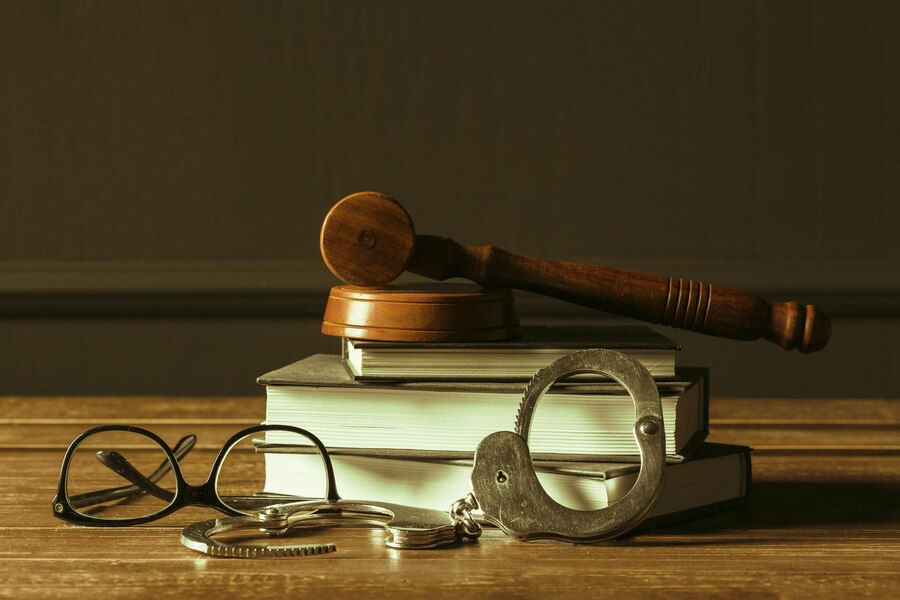The Importance Of Criminal Law And How It Ensures Public Safety
26 March 2024
5 Mins Read

toc impalement
At the heart of criminal law lie the enduring principles of fairness, accountability, and the safeguarding of public safety; indeed, it is foundational to the establishment of societal order and stability. It provides a structured framework designed to regulate behavior—acting as both a deterrent against misconduct and as an upholder of justice: this is its indispensable role.
In molding the actions of individuals—and, indeed, in sustaining the very fabric that binds communities together; criminal law is intrinsically crucial at every tier of society.
Foundation Of Legal Norms And Standards
At its most fundamental level, criminal law serves as the framework for establishing legal norms and standards that oversee and regulate the behavior of society. It meticulously delineates the boundaries of conduct that is deemed unacceptable and outlines the consequences for those who break these proscribed actions; thereby setting forth clear boundaries—essentially societal expectations—for every individual: this guarantees that all citizens fully grasp not only their rights but also their duties within the purview of the legal system.
This foundational network of legal norms is instrumental, as it both cultivates a robust sense of order and ensures predictability across the community—thereby encouraging adherence to laws and simultaneously acting as a deterrent against prospective infractions.
Protection Of Public Safety And Security

Criminal law fundamentally aims to safeguard public safety and well-being by either deterring or penalizing actions that may threaten individuals or the larger community. The legal system achieves a dual objective when it prosecutes criminal acts like assault, theft, and homicide: It guarantees perpetrators face accountability for their deeds; simultaneously serving as a deterrent to dissuade others from participating in comparable unlawful behaviors.
Society’s enforcement of these laws stems from its dedication to protecting citizens’ liberties and security; ultimately striving towards fostering Fearlessness – an environment where everyone can live freely without fear’s pervasive presence – while also ensuring unhindered business conduct. At the heart of enforcing criminal law lies a framework, robust and protective, that embodies support: support for justice; protection for society–its bedrock.
Promotion Of Justice And Equity
Criminal law: a pivotal force in fostering justice and equity within society–it holds individuals accountable for their actions, ensuring that offenders face appropriate consequences. Striving to strike the delicate balance between punishment imposition and rehabilitation facilitation, criminal law implements penalties proportionate to the gravity of each offense; furthermore, it takes into account factors such as mitigating circumstances, presence, and victims’ interests. Administering justice serves as the conduit through which societal norms receive reinforcement from criminal law; consequently, it fosters a perception of fairness and equitable treatment throughout our community’s various strata.
Preservation Of Social Order And Stability
Maintaining societal order and stability: is the primary role of criminal law. It accomplishes this by targeting behaviors – such as frauds, corruption, and even disturbing activities within organized crime networks – that are detrimental to society’s social fabric; thus playing a crucial part in addressing these offenses through prosecution. Posing a significant threat, these types of crimes have the potential to profoundly erode the public’s trust in legal frameworks’ integrity and their upholding institutions.
The unwavering commitment of criminal law to preserve democratic institutions’ integrity and protect individual rights manifests through diligent prosecution of such offenses; these stand as foundational pillars for its existence. Furthermore, it maintains an unyielding pursuit ensuring that honesty, integrity, and accountability become core societal values eternally.
Role Of Lawyers In The Criminal Justice System

In the criminal justice system, lawyers maintain a pivotal position; they represent clients accused of committing criminal offenses. Specifically, a criminal lawyer fervently advocates for the rights of these accused individuals – their primary goal being to secure fair trials and guarantee due process protections. Moreover – through effective legal representation: prosecutors ensure that offenders are held accountable and convictions are secured in pursuit of public safety and justice; this presents an intriguing dichotomy—both sides working towards competing yet vital interests within our legal framework.
Prevention And Rehabilitation
In the realm of criminal law, there exists a profound recognition of the pivotal role that both preventative strategies and rehabilitative measures play in combating criminal conduct. This domain stresses not only the aspect of meting out punitive measures but equally the principle of deterrence to thwart future offenses. By implementing a range of programs and strategic interventions, the criminal justice system earnestly strives to achieve two essential objectives: to forestall the potential occurrence of unlawful activities and to provide those who have transgressed with opportunities for rehabilitation.
Such rehabilitative efforts are crucial as they contribute significantly to the reduction of recidivism rates and enhance the long-term safety and security of the general public. Moreover, it is acknowledged within these justice systems that tackling fundamental problems such as poverty, addiction to substances, and shortfalls in education is vitally important for enabling an individual who has committed a crime to successfully reintegrate into society and lead a life following the law.
Balancing Rights And Responsibilities
The administration of criminal law operates within an intricate legal structure that carefully ensures a delicate equilibrium between the liberties and duties of individuals and the broader requisites vital to the welfare of society. On the one hand, the law provides individuals with certain protective legal rights and privileges; on the other hand, individuals must honor and defend the rights and safety of their fellow citizens. At its core, the main aim of criminal law is to maintain a harmonious balance between personal freedoms and societal well-being.
This challenging undertaking is pivotal in not only ensuring that justice is served but also in resolutely safeguarding core values like fairness, equality, and strict adherence to due process.
Criminal law is a pivotal instrument that ensures societal order, justice, and public safety; it does so by establishing legal norms–protecting public safety, promoting equity, and balancing rights with responsibilities. The rule of law is upheld through its efforts to preserve social order while concurrently safeguarding individual and community well-being. Lawyers, policymakers – even law enforcement agencies along community stakeholders all work together in a concerted effort: their aim? Advancing principles not just for justice or fairness but also accountability – ultimately striving towards a world where safety reigns supreme over all else–a truly equitable society that’s been long overdue on our planet Earth!
Read Also:


















Comments Are Closed For This Article